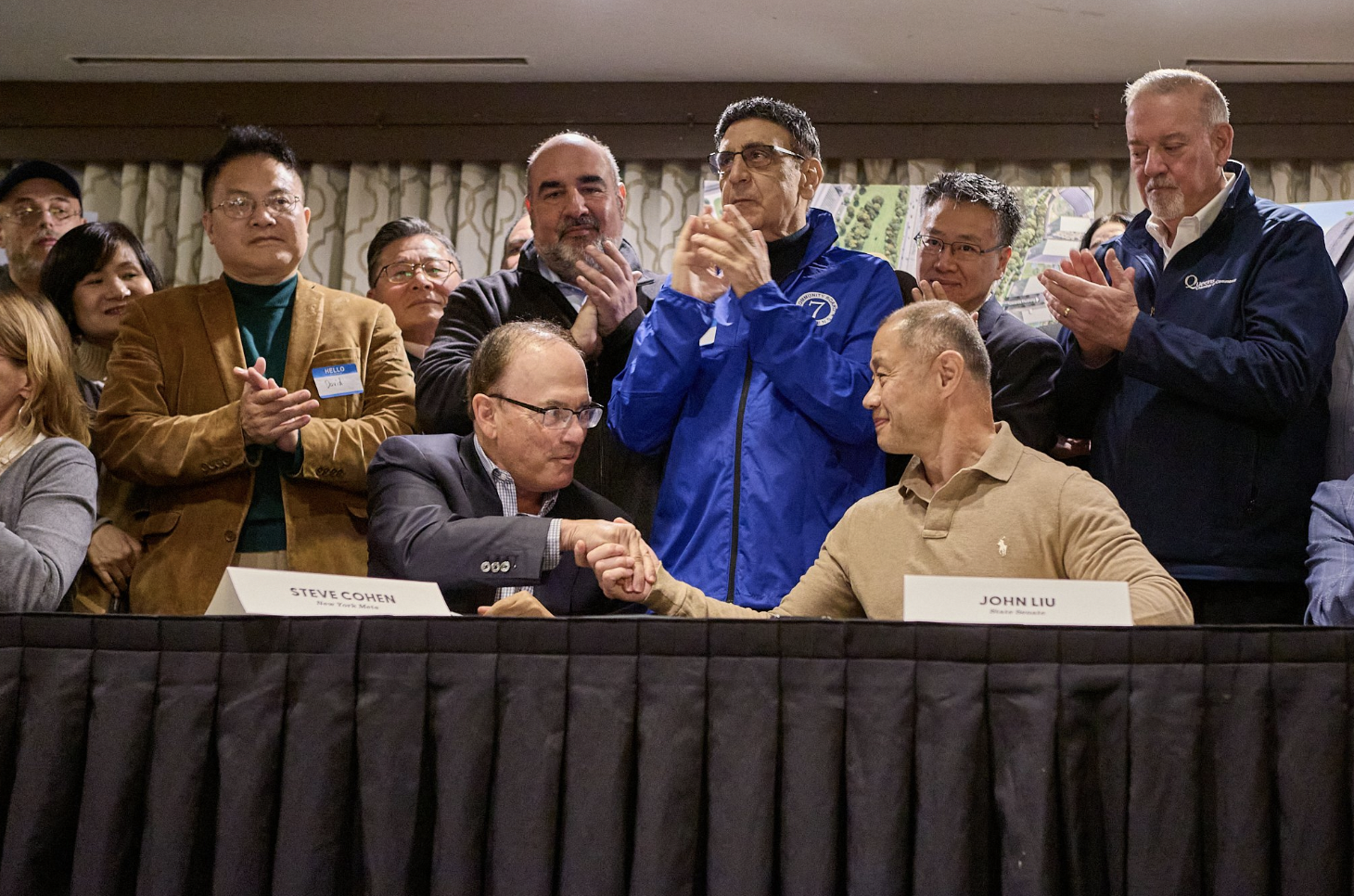Las Vegas Sands will no longer pursue a $6 billion plan to build a casino-resort at the Nassau Coliseum, company executives told investors Wednesday.
The Nevada-based company will not apply in June for one of New York State’s three gaming licenses available for the downstate region, citing market forces including the threat of online gambling to in-person table games, the U.S. economic climate and better uses of capital to gird further depreciation of the company’s stock value. The decision came months after Sands completed a Draft Environmental Impact Statement as part of the public review process.
We are in the process of attempting to secure an agreement with a third party to whom we can transact the opportunity to bid for a casino license on the Nassau Coliseum site. This would include those that may be able to address both land-based and digital markets in New York,” Sands president Patrick Dumont said on the call announcing the company’s earnings in the first quarter of 2025.
He added: “Sands has decided not to bid for a casino license in New York.”
WHAT NEWSDAY FOUND
- Las Vegas Sands has decided not to pursue a $6 billion casino-resort project at Nassau Coliseum, citing market challenges like online gambling and economic conditions.
- A spokesman for Nassau County Executive Bruce Blakeman noted “strong interest” from other casino companies, while community opposition remains strong due to concerns about traffic, pollution and water usage.
- The withdrawal of Sands opens opportunities for other developers, with significant implications for the local economy and political landscape, as well as potential benefits for competitors like Steve Cohen, who proposed a casino near Citi Field.
Sands CEO Robert Goldstein and Nassau County Executive Bruce Blakeman brokered the deal three years ago to build the casino-resort on the 72-acre, county-owned Coliseum property in Uniondale, once billed as Sands’ U.S. flagship location. The company holds a 42-year operating lease and is in the middle of the land-use approval process to gain a 99-year development lease.
Blakeman, a Republican running for reelection in November, had championed the project as an economic stimulus that promised to create thousands of temporary and permanent jobs.
Blakeman spokesman Chris Boyle in a statement said there is “strong interest” from other casino companies looking to replace Sands at the Coliseum and take over the licensing application process.
“Nassau County will crystallize within the next 30 days whether or not to entertain a casino component or develop the site without. In either event there will be an exciting new development that will create jobs and positive economic activity,” Boyle said.
Democratic county lawmakers, including Legis. Seth Koslow (D-Merrick), who is challenging Blakeman in November, declined to comment.
The proposal was one of the largest private development projects on Long Island and had wide-ranging, bipartisan support from county lawmakers as well as a cross section of business groups, trade unions and entrepreneurs.
It also prompted legal battles and rowdy, overcrowded meetings during the state-mandated environmental review process.
Hofstra University and residents from communities surrounding the Coliseum, notably Garden City, opposed the plan, citing worries about increased traffic, noise and air pollution and water usage.
The company was near completion of its final environment impact statement, which would have included widening the Meadowbrook Parkway and building a new water tower that would draw from the underground aquifer.
The community opposition group, Say NO to the Casino, says they are against transferring the bid and will continue to fight against any casino on the Coliseum property.
“We are thrilled that Las Vegas Sands has stepped away. Our group has fought hard to show that dropping a mega casino in the middle of our suburban community would be a wholly destructive choice,” the group’s statement said. “There will never be support for a casino in Nassau County. Now the focus can shift to defining a future for the site that benefits rather than exploits our community.”
John Durso, president of the Long Island Federation of Labor, representing thousands of union workers, said they “remain optimistic.”
“The broad-based support for development of a transformational project at the Nassau Coliseum is evident by the massive support over the last several years,” Durso said in a text message. “We remain optimistic Sands is successful in securing an agreement with a third party who shares our vision focused on strengthening our communities, creating good union jobs, and making sound local investments that will deliver for generations.”
Bennett Liebman, government lawyer in residence at Albany Law School who served as Gov. Andrew M. Cuomo’s deputy secretary for gaming and racing, said it was “a huge, huge surprise” for Sands to drop out of consideration.
Sands’ proposal would likely have had less impact on surrounding communities than other proposals, Liebman said, and the company is “generally considered one of the top five firms in the casino industry.”
Billionaire Mets owner Steve Cohen, who has proposed a casino near Citi Field, probably stands to gain the most from the Sands move, Liebman said. Cohen’s group “lost a very strong competitor.”
The state Gaming Facility Location Board in December 2021 issued a request for proposals. After several delays, the state set a deadline for casino companies and their development partners to submit an application by June 27, with a decision on who would get the licenses by the end of this year.
A state gaming license allows for casino operators to offer traditional, in-person table games such as poker and blackjack. When it was initially proposed in 2022, Sands officials estimated a revenue of $2 billion a year from the Coliseum site.
With Nicholas Spangler






